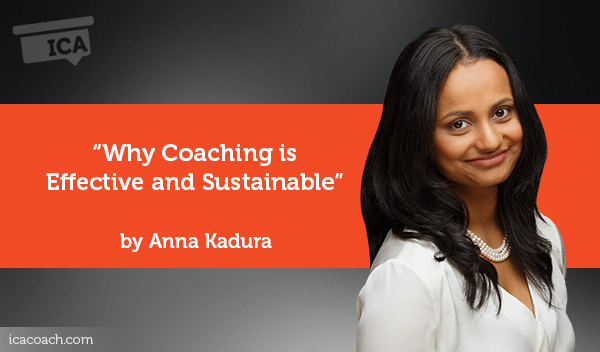 Research Paper By Anna Kadura
Research Paper By Anna Kadura
(Life Coach, GERMANY)
It is not perfection in itself but the strife for perfection which makes man perfect
Executive Summary
Man is made in a way that he instinctually fends for himself first and foremost. This research paper shows that coaching by supporting this instinct creates growth not only for the individual but for mankind as a whole. When the primary instincts and constitution of man is supported and given the opportunity to express itself, stable and sustainable change is created on a scale that is larger than the individual him/herself.
Introduction
A pot that is not full cannot pour out water. True Altruism can only manifest when the individual is fulfilled. This is only form of Altruism that is stable, sustainable and will stand the test of time. Other forms of Altruism, arising out of a need or overcompensation or filling a void will sparkle and die out for they don’t have deep roots.
Philosophies and religious viewpoints have been preached, discussed and interpreted many times over in the centuries past, to what it is today. There seems to be a gap in the understanding of these philosophies. Self-development and Self-Conquest have been replaced with service unto others. While this may seem innocuous, it has completely redirected the purpose of existence as defined by these philosophies.
This is reflected in many major philosophies in our world. The Hindu philosophy believes in salvation of the self, moksha. This is to be attained by constant self-development so that in the end, we end our sufferings by working on the triggers and roots of those sufferings which lie within us.
According to Hindu philosophy, salvation involves the release from suffering (dukhha) and a corresponding attainment of wholeness through the realization of one’s true nature – what is called the Atman or Self (with a capital “S”). The teachings of Advaita Vedanta, a spiritual-philosophical system of thought that has had one of the most enduring impacts on Hindu culture and religion, posit that, the essential nature of the human and the entire universe are the same, and both are Spirit (Feuerstein, 2000). (Roeser, 2005)
The Holy Bible has many verses that echo this very same thought.
The Bible says that there is the divine in man. The verse in Genesis is a reflection of that. Further in the Book of Proverbs, the Bible continues on to say that by connecting and revering the divine, by seeking wisdom, one preserves oneself from destruction, essentially attaining salvation. These threads are continued in the New Testament where we find an exhortation to continue to seek, to grow and to find. Also to look within ourselves first before we look at others. .” (The Book of Mathew, The Holy Bible) Genesis 1:27 (Soloman)Proverbs 1:7 Bible, (Soloman)Proverbs 2:10-11 Bible, “, (The Book of Mathew, The Holy Bible)Matthew 13:12. Bible
For every one that asketh receiveth; and he that seeketh findeth; and to him that knocketh it shall be opened. (The Book of Mathew, The Holy Bible) Mathew 7:8
The world of rational philosophers is not different in their reasoning.
The Chinese Philosopher Confucius in his Book ‘Da Xue’ – ‘The Great Learning’, says this most beautifully. He talks about a virtuous cycle, beginning with an entire Kingdom demonstrating virtue having its foundation in the individual man demonstrating virtue. And how this purifies the individual to such a degree that the virtuous Kingdom is but a natural outcome of this great endeavour.
The ancients, who wished to illustrate illustrious virtue throughout the kingdom, first ordered well their own states. Wishing to order well their states, they first regulated their families. Wishing to regulate their families, they first cultivated their persons. Wishing to cultivate their persons, they first rectified their hearts. Wishing to rectify their hearts, they first sought to be sincere in their thoughts. Wishing to be sincere in their thoughts, they first extended to the utmost their knowledge. Such extension of knowledge lay in the investigation of things. Things being investigated, knowledge became complete. Their knowledge being complete, their thoughts were sincere. Their thoughts being sincere, their hearts were then rectified. Their hearts being rectified, their persons were cultivated. Their persons being cultivated, their families were regulated. Their families being regulated, their states were rightly governed. Their states being rightly governed, the whole kingdom was made tranquil and happy. From the Son of Heaven down to the mass of the people, all must consider the cultivation of the person the root of everything besides. It cannot be, when the root is neglected, that what should spring from it will be well ordered. It never has been the case that what was of great importance has been slightly cared for, and, at the same time, that what was of slight importance has been greatly cared for. (Confusius, 551-479 BC)